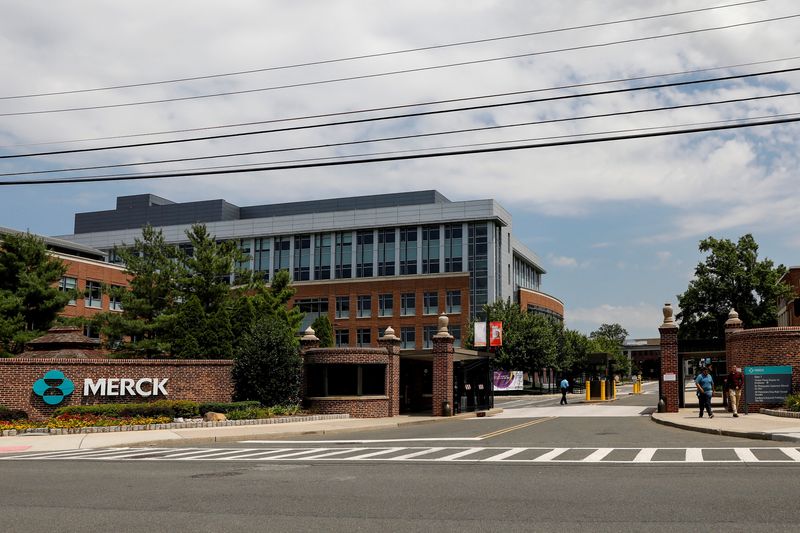
By Michael Erman and Mariam Sunny
(Reuters) -Merck said on Tuesday it would not ship its HPV vaccine Gardasil in China until at least the middle of this year due to weak discretionary spending, a move that dented its full-year forecast and sent shares tumbling over 8% in premarket trading.
Gardasil, which prevents cancers caused by the human papillomavirus (HPV), has been one of Merck’s top growth drivers aside from Keytruda, and much of its international growth had come from China before sales of the shot slowed significantly since the second quarter of 2024.
“Like many other companies, we’ve seen increased pressure on discretionary consumer spending, including across the vaccine space more broadly, and demand for Gardasil has not recovered to the level we had expected,” CEO Rob Davis said in remarks prepared for the company’s conference call.
Merck said it had stopped Gardasil shipments to China from this month. The company has previously said China’s anti-bribery and anti-corruption drive had also hurt sales of the vaccine.
“We believe China still represents a significant long-term opportunity for Gardasil given the large number of females, and now males, … that are not yet immunized,” Davis said.
Merck’s Gardasil sales fell short of expectations in the fourth quarter and the company also pulled its long-term target of $11 billion in Gardasil sales by 2030 in light of the decision to stop shipments to China.
The company forecast total revenue of $64.1 billion to $65.6 billion for 2025, which also missed analysts’ average estimate of $67.3 billion, according to data compiled by LSEG.
“The overhead of ongoing struggles for Gardasil in China are likely to continue to pressure Merck shares throughout the day, especially with a new trade war starting today,” BMO Capital analyst Evan Seigerman said.
President Donald Trump on Tuesday imposed a 10% tariff on all Chinese imports, meaning Merck will have to pay higher duties on the medicines it makes in its China plants for sale in the U.S.
Merck forecast of earning $8.88 to $9.03 per share this year, compared with analysts estimates of $9.03 a share.
Merck’s fourth-quarter Gardasil sales of $1.55 billion missed Wall Street’s estimate of around $1.8 billion, which has been pared back nearly 20% since the issues in China were disclosed last summer.
Still, sales of Keytruda, the world’s top-selling prescription medicine, more than offset that shortfall. The company sold over $7.8 billion worth of the drug in the quarter, compared with analyst forecasts of around $7.4 billion.

